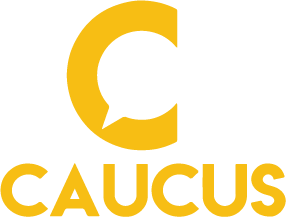 This article was originally published with The Manila Times on November 8, 2018.
This article was originally published with The Manila Times on November 8, 2018.
Throughout my series of columns here, I talked about the impact of innovation and digitization on our lives, and how it has brought about various opportunities and challenges, such as making everyday actions more efficient, to having to realize the value of, and need to protect, our data.
In a previous column titled “Evolve or Die” I discussed how many companies, most of them industry leaders, either lost significant market share or even folded-up as a consequence of not innovating, not “keeping up with the times” so to speak.
Today, I will discuss some of the challenges as a result of the Fourth Industrial Revolution (4IR) specifically from a human resource perspective.
It is undeniable that technology has advanced incredibly quickly, and has become astonishingly pervasive, over the past few decades. The birth and growth of the internet, and the growth of e-commerce and online shopping, are considered part of the tail-end of the Third Industrial Revolution.
The Fourth Industrial Revolution is a term first coined by Klaus Schwab, the founder and executive chairman of the World Economic Forum. He described the phenomenon as “a fusion of technologies that is blurring the lines between the physical, digital, and biological spheres.”
Key aspects of 4IR are reflective of this leap in technology, including robotics, artificial intelligence (AI), the internet of things, digitalization, and automation.
One can always argue that while the concepts are there, the impacts will be felt a long way down the road. However, with technology constantly changing at an incredible speed, I can argue the exact opposite. 4IR is here, and we need to prepare ourselves and our children for this new way of life.
A report by The Education Commission predicted that by 2030, around one billion youth worldwide will lack the skills or qualifications to participate in the new global workforce. It is already difficult enough to compete in the job market today, but to not have the relevant skills in the future, that is catastrophic.
That said, what are the skills of the future? A separate Deloitte report shows these are readiness skills, soft skills, technical skills, and entrepreneurial skills.
What does this mean for the Philippines? We first must understand that we are a service-oriented economy. We rely heavily on our OFWs and our BPOs as key economic drivers. As a result, the innovations brought about by artificial intelligence pose threats to our BPO sector, specifically as technologies become more and more intelligent and adaptive. We have around a million call center jobs across the country, and they would be the most at risk by the developments of technology.
I was chatting with a friend recently regarding the messaging bots he had developed for a restaurant’s online profile. It was designed to provide answers to questions posed by customers online, and in English. It was a relatively simple bot, programmed to discuss the menu and locations of the restaurant, but what was surprising was that the AI had began to learn Filipino and was already answering queries in Filipino, despite the fact that the program was coded for it to answer in and understand only English.
As a lawyer, I am faced with competition by my AI counterparts. A number of AI programs are already finding themselves in key areas of legal practice, such as the performance of due diligence, document automation, legal research, conducting IP and conflicts tests, among others.
In my column last month, I discussed some innovations that are not mere concepts, but are already on-the-ground in China. For instance, the automated foreign exchange kiosk is found in many hotels. It records the identity of the person, scans the identification card, accepts the currency you want exchanged, scans for authenticity, and dispenses the local currency. All self-service and fully automated.
These technologies already being implemented are working well and can result in the redundancy of some jobs. What does that pose for the Philippine workforce of the future? Definitely challenges for a more technology-focused skills development.
In my next column I will discuss in more depth the specific skills we need to develop to educate and prepare ourselves and the youth for a technology-heavy future.
A final word for now, we need to have a more forward-thinking perspective. Let us not put off for tomorrow what is already evidently a challenge today.
The author is the Founder and CEO of Caucus, Inc., a multi-industry, multi-disciplinary consultancy firm. He graduated MBA from De La Salle University, Juris Doctor from Far Eastern University, and LLM in International Commercial Law from the University of Nottingham, United Kingdom. He also studied Mandarin Chinese Language and Culture in Fuzhou, China, was a Chevening-HSBC UK Government Scholar, a Confucius Institute Scholar, an alumnus of the US State Department’s International Visitor Leadership Program, and a Fellow of the Asia Global Institute – University of Hong Kong. The author may be emailed at iap@caucusinc.com or pozonipa@hku.hk.
